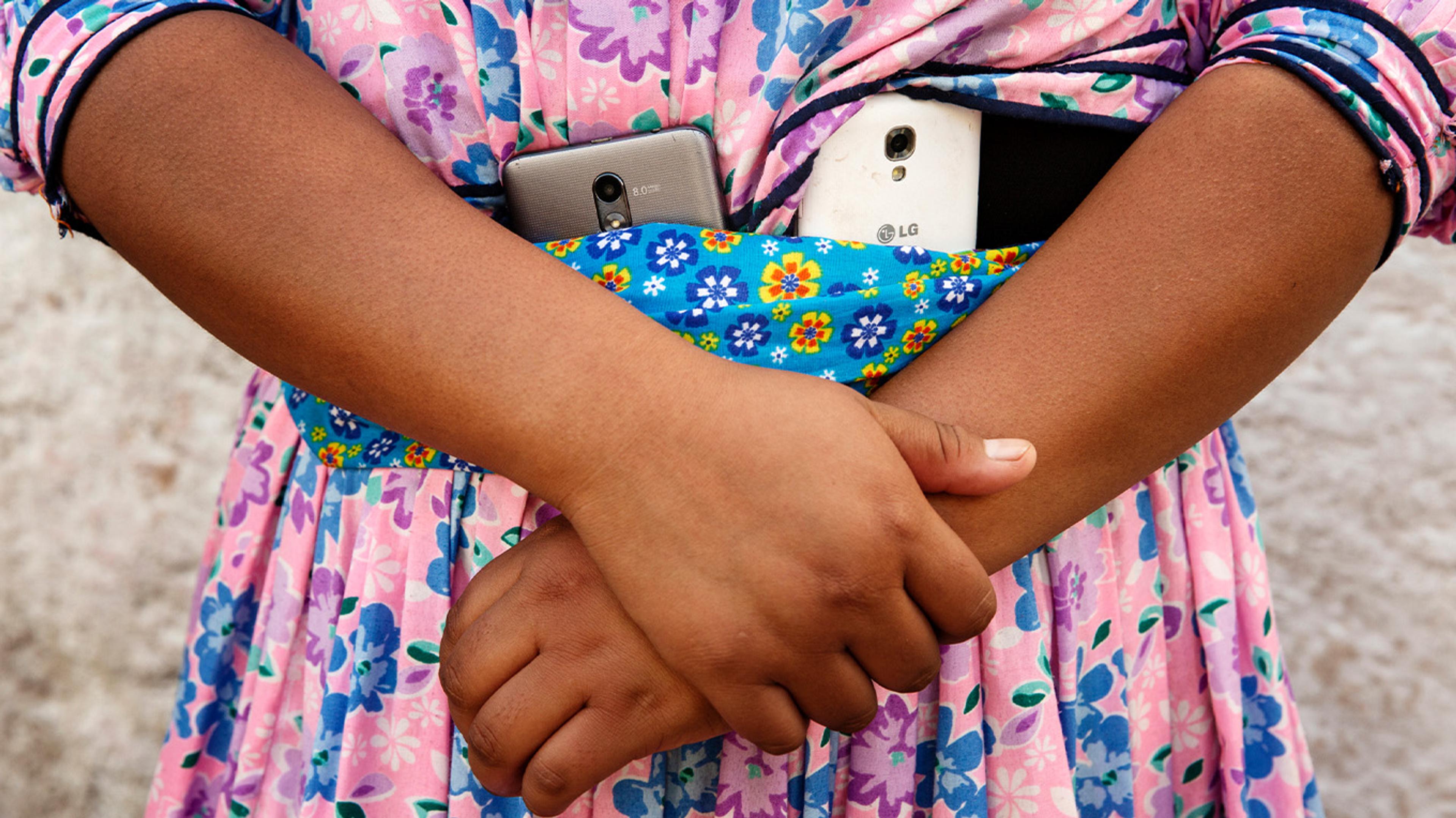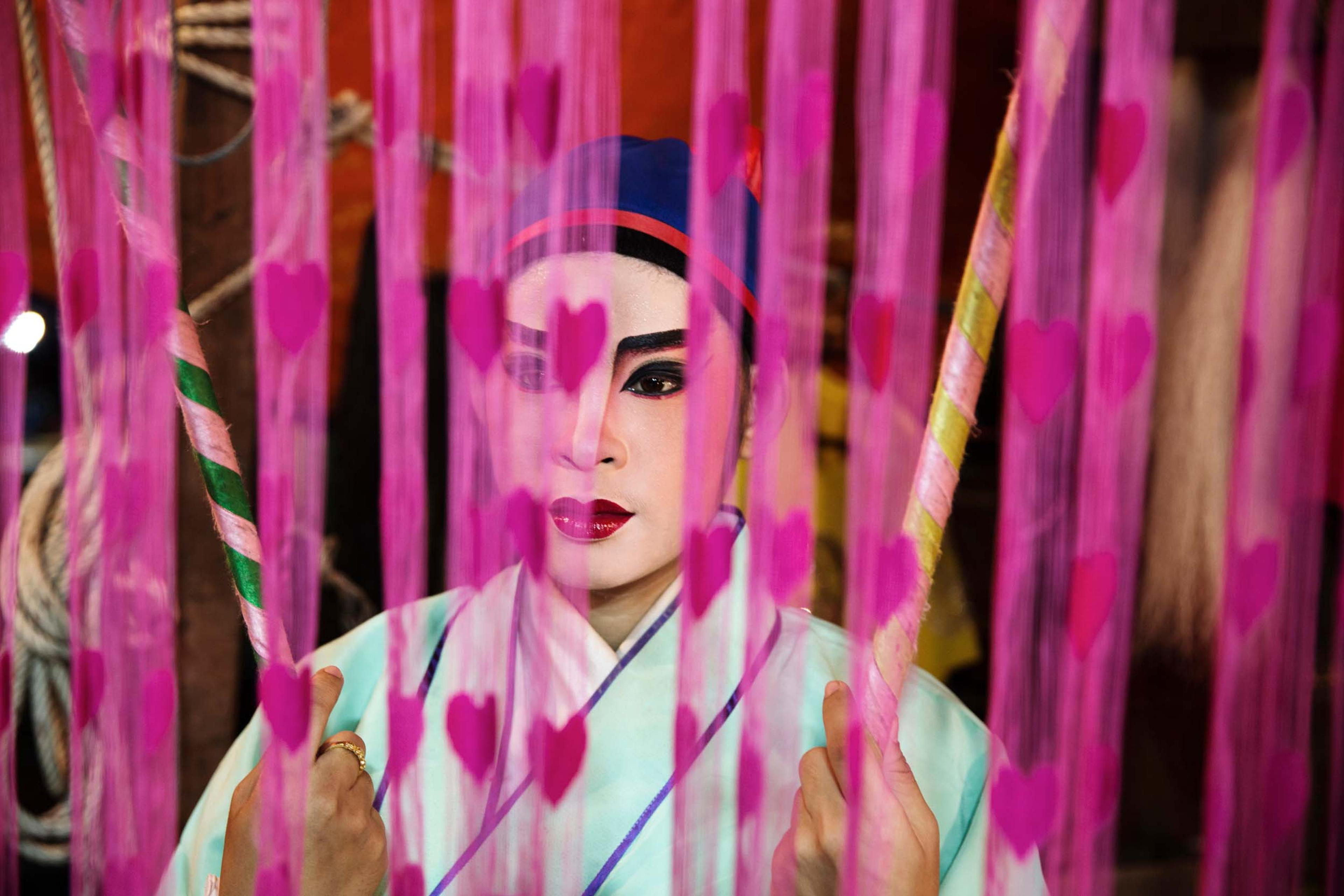FFL/Malin Fezehai/Essity
Power of Hands

The Fotografiska For Life exhibition Power of Hands, with Malin Fezehai’s engaging photography from different parts of the world, shows the power of our hands. These amazing tools enrich our lives and let us reach each other, mostly for good, but also for bad. In that area there are easy steps through which we can all make a difference. Essity is knowledge-partner in this exhibition, with their insights into the role of hands when it comes to our hygiene and health – there is hope.

being able to wash our hands is absolutely necessary for good health
This Fotografiska For Life exhibition, in cooperation with our knowledge partner Essity, shows Malin Fezehai’s empathic photography of how people all around the world live their lives. In frozen moments, we get to experience hands as the main actors – in all their everydayness and, at the same time, wonderfulness. Power of Hands is an homage to the role hands play in our interactions – how they, through our body language, make up one of our most important forms of expression.
“Malin Fezehai is a young, award-winning Swedish-Eritrean photographer based in New York, that’s been working in over 30 countries in Asia, the Middle East, Africa, and America, often with a focus on cultures in change. She has, for example, documented people subjected to extremism south of Sahara at the request of the UN, which resulted in the book Survivors. In the Fotografiska For Life exhibition Power of Hands, Fezehai’s empathic photography shows us how much of what is deeply human constantly unites us”, says Lisa Hydén, exhibition producer at Fotografiska International.
In Fezehais pictures we meet the hand that sooth its own nerves, the one that touches soil and nature, that becomes part of a bigger story. We meet hands that create words and pictures, that stiches clothes or put on a careful make up to express cultural belonging, the hand that grips the handlebars for the very first bicycle trip, as with tenderness braids a fellow’s hair or fingertips that meet drops from the sea. From a refugee camp in Lebanon to film shoot in Brooklyn, from the Chinese Opera in Thailand to a harbor in Sri Lanka – the journey goes from hand to hand and weave us human beings together.
“My hands are my tools in the creation of the image, but they also mean a lot when I portray people. How the expression of their body is captured is just as important as the facial expression. Because it can communicate so many different things, like tenderness, pride, joy, or sadness. People are the same and different all over the world, in the same way as individuals are the same and different. We all live in the same world with different realities, and I constantly try to learn about people’s different lives – regardless of if the person is a refugee, a politician, or a musician. I work in many different realities and to me the human connection is the most important”, says Malin Fezehai.
The hygiene- and health-company Essity, with their report “ Hygiene and Health Report 2018-2019/ Personal Well-being – Key to Public Progress”, is knowledge partner in the exhibition. To them, the exhibition is a visual journey over four continents, reflecting how people all around the world live their lives through the key values of Commitment, Care, Courage, and Collaboration, where being able to wash our hands is absolutely necessary for good health.
People’s strong connection to their hands as relationship-builders is evident in language. Taking charge of something is described as “handling” it, resolving a conflict can be described as “extending a hand of friendship”, when someone helps you out they “give a hand”, and when we come to an agreement we “shake hands on it”.
During a single day our hands come into contact with a great number of objects and places, as well as ourselves and other people. We give and take with these amazing tools, with which we reach each other. From an evolutionary perspective, it is also the ones who have had the capability of working together that have survived the best, the ones who managed to create togetherness and connection, which gives a feeling of meaningfulness.
“Power of Hands celebrates one of humanity's most important tools. If we use our hands in the right way, we can strengthen and help each other – we can save lives. But hands also cause the spread of infection, if they are not kept clean... ”
bacteria knows no boundaries
Many people lack knowledge of, and access to, the means to maintain good hygiene. Unclean hands are one of the main reasons for the spreading of some of the world’s most infectious diseases, and the development of multidrug-resistant bacteria – growing problems around the world with health-consequences we’ve only seen the beginning of. The access to clean water, and education on the importance of a good hand-hygiene, is essential all over the world – bacteria knows no boundaries. If we make sure to observe good hand-hygiene for everyone, we can make a difference right away.
Otto Cars, Senior Professor of Infectious Diseases at Uppsala University, is one of the experts in the UN’s joint action group concerning antimicrobial resistance. In 2005, he founded the organisation ReAct – Action on Antibiotic Resistance. In the exhibition he contributes with his reflections around the vital question of multidrug-resistance, that Power of Hands helps to lift and put focus on.
“We need stronger global research-cooperation and development of new pharmaceuticals that are produced in a sustainable way, and reach all who need them. Otherwise, millions of people will die in infectious diseases – diseases that we’ve gotten used to cure with antibiotics. Resistant bacteria are already raising the numbers of deaths from sepsis, and if we can’t turn the tide, chances are infections from wounds, and pneumonia, will become deadly once more. Everyone has to help out to decrease the use of antibiotics, for example unnecessary use of it to treat the common cold. Access to clean water and hygiene has to increase all over the world to decrease infections and the need for antibiotics”, says Otto Cars.
This Fotografiska For Life exhibition benefits UNICEF’s international work with water, sanitation, and hygiene. The proceeds will give children and their families, all over the world, a possibility for survival and health.